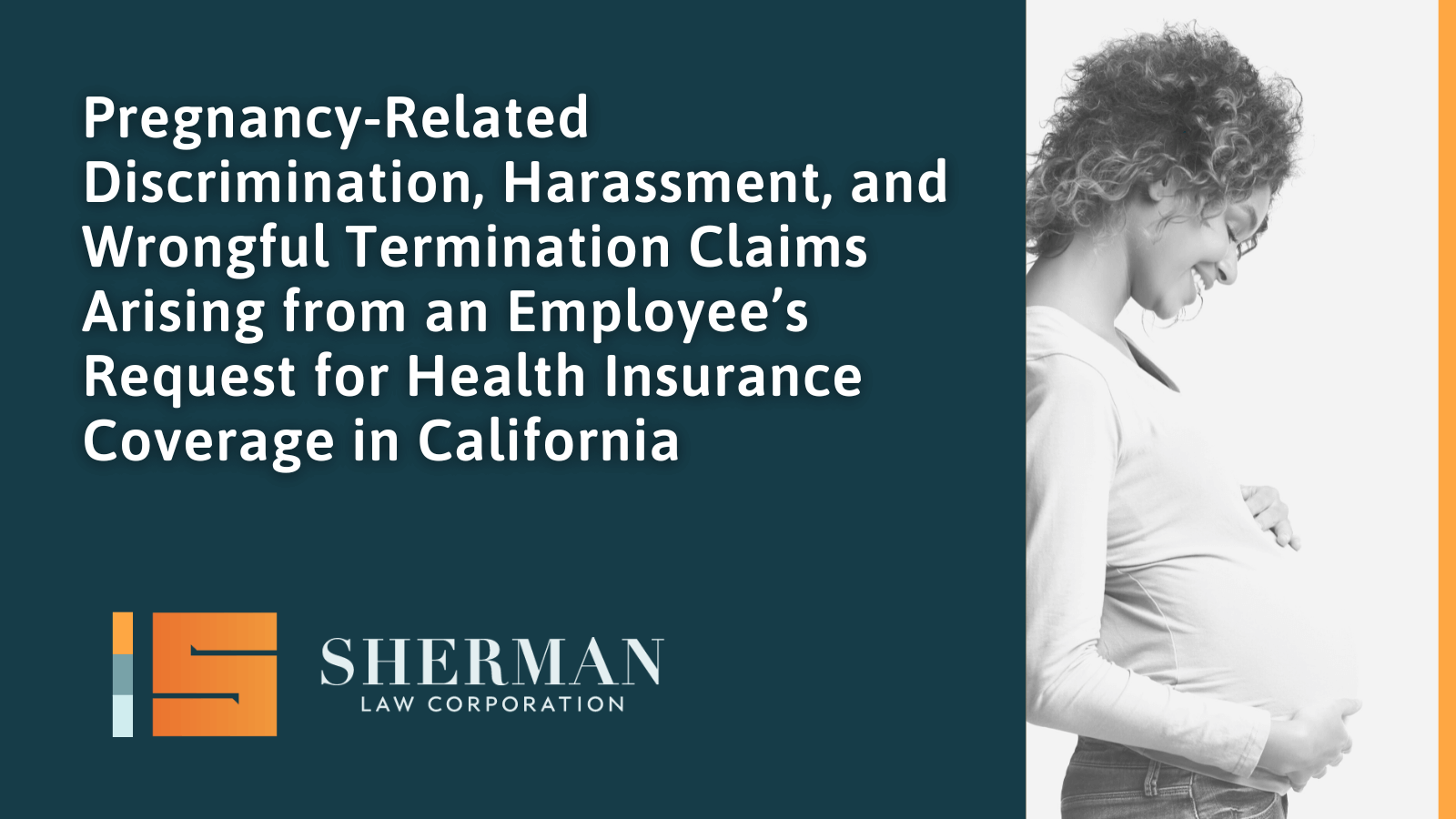
So your full-time office manager who works in the office 5 days per week, an essential function of her job, has announced her pregnancy and the employer could not be more supportive of her.
The employer provides free services to the employee; accommodates all of her doctor appointments and requests for time off when not feeling well, and throws her a lovely baby shower.
Just before the employee is to go out on disability leave to await the birth of her first baby, she informs the employer that she cannot return to work full-time in the office 5 days per week due to anticipated childcare issues, resigns, and begs to be considered for a part-time remote position which the employer in a soft moment offers to consider.
The resignation letter went missing and the employer did not process the payout of her remaining PTO.
From experienced California employment attorney Lisa Sherman, here’s what happened in this case, and how to ensure the same doesn’t happen at your company in the future.
Alleged Pregnancy-Related Discrimination, Harassment, and Wrongful Termination Case
After the birth of her baby, the employee contacts the employer’s insurance broker to sign up for medical insurance, without notifying her employer who believed that she had resigned her employment and if she did return to work it would be part-time so that she would not be entitled to benefits.
When the insurance broker informs the employer what transpired and how much the insurance would cost to the employee and employer, the employer informs the broker she had no knowledge of this and would not be entitled to insurance since she resigned.
The broker off-handedly tells the employer that in 30 years of insurance, she has never seen anything like this and sounds like insurance fraud.
The employer decides not to address this with the employee but instead takes the high road and tells her she has to work 32 hours minimum to maintain the insurance.
The employee agrees to 32 hours but insists that 2 of the days she work remote, despite the position being in office all 5 days. After the employer rejects this, the employer offers her to return to work 3 days per week.
The employer then instructs the broker to cancel the employee’s insurance because she had not accepted a full-time position. The employer, still upset by the broker’s comment, retains California employment counsel because she does not trust the employee and regrets rehiring her in the part-time position.
California employment counsel ghostwrites a letter terminating the employee’s part-time position or any other position while the employee, if she had not resigned, was on baby bonding leave because she sought insurance without employer consent and either constituted fraud or poor judgment.
The employee claimed that the employer discriminated and wrongfully terminated her because of her was pregnancy and in violation of the Pregnancy Discrimination Leave Law (“PDLL).
The employee denied she resigned and all the communications after her last day referenced her maternity leave which supported her claim. If she had not resigned, the employee was provided pregnancy leave in compliance with the PDLL, however, no paperwork was provided to her as required by law.
After she had the baby, the employee then was entitled to 12 weeks of baby bonding leave under the California Family Rights Act (“CFRA”), which also required paperwork which was not provided here. Significantly, both laws require an employer to provide an employee with insurance as if they were not on protected leave.
In other words, on her last day of employment, she was working full-time in the office a minimum of 32 hours a week which qualified her for health insurance benefits. While she was on both leaves, she was entitled to obtain health insurance, regardless of her intentions to return to work.
Moreover, the communications between the employee and the broker obtained after the termination indicated that the employee sought the health insurance from the broker directly because that is how she obtained vision and dental insurance earlier so not notifying the employer was consistent with past practice.
Moreover, the emails stated her intent to return to work 32 hours a week and the reason she was seeking insurance due to her husband’s policy dropping her and her son. The emails confirmed that the employee did not intentionally defraud the employer or use poor judgment in seeking the insurance the PDLL and CFRA expressly permitted the employee to obtain.
Unfortunately for this employer, she sought counsel which she relied upon in terminating the position which would allow her to plead the advice of counsel defense to negate any intentional unlawful motive, but did not relieve the employer from potential liability from this employee.
So many lessons learned for this California employer.
Contact Lisa Sherman
For additional information or wish to seek employment counsel, please contact Lisa Sherman for a free consultation at (323)488-2087 or at Lisa@sherm-law.com.




